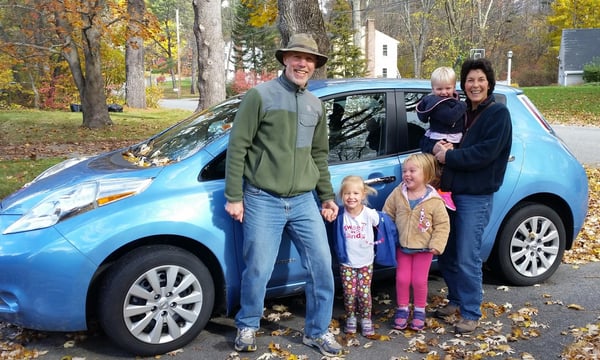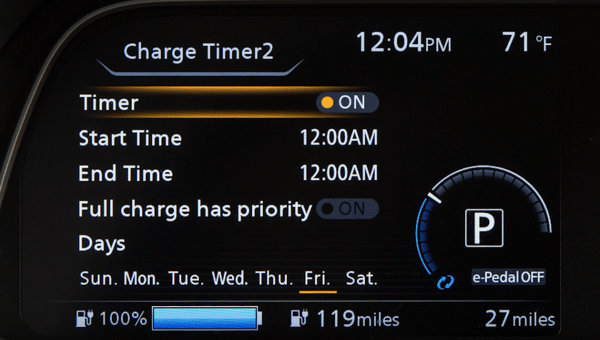 The Massachusetts Department of Public Utilities (DPU), the government body responsible for overseeing the operation of gas and electric utilities, is considering proposals by National Grid and Eversource to modernize the electric grid and support the buildout of EV charging infrastructure.
The Massachusetts Department of Public Utilities (DPU), the government body responsible for overseeing the operation of gas and electric utilities, is considering proposals by National Grid and Eversource to modernize the electric grid and support the buildout of EV charging infrastructure.
As an intervenor in these proposals (referred to as “dockets,”) Green Energy Consumers Alliance has been digging deep into the details of the utility plans to support investments that make it easier for Massachusetts to have a modern, robust electrical system ready to support the state’s transition to low-carbon alternatives, like EVs.
We think the best parts of utility proposals will serve the public interest because they will support the Commonwealth’s effort to address climate change by enabling smarter energy management and making money- and energy-saving technologies, such as smart meters, accessible to ratepayers. As an example of how this technology relates to climate change, one of the most common questions we get about electric cars is “Is the electric grid prepared to handle them?” The decisions under consideration at the DPU may advance Massachusetts’ ability to answer this question with a resounding yes.
So, in October 2021, we at Green Energy Consumers Alliance distributed a survey to 6,000 of our members in Massachusetts. We asked 26 questions about electric vehicles, charging stations, smart meters, and time-varying rates. Our goal with the survey was two-fold:
First, we wanted to confirm our understanding of our members’ interest in clean energy programs from the utility. Second, we wanted some helpful data to support our positions in DPU dockets. Although “clean energy programs that save consumers money” is a winning deal, it will require millions of dollars of investments by the utilities. It’s the DPU’s job to decide whether the benefits are worth the cost, and clear data about what consumers want is helpful to make a stronger case to support the investments.
In looking at survey responses, we acknowledge that Green Energy Consumers Alliance members are more likely to care about climate change and the environmental benefits of EVs than the average Massachusetts resident. We also have specific programs, like Shave the Peak and Drive Green, that mean our survey respondents are more likely to have existing knowledge about the technologies we asked about. For example, 33% of survey respondents reported that they drive an EV, compared to about 2% of the general Massachusetts population.
As a result, some responses to the survey may be skewed to reflect the values and beliefs within our member base. However, when it comes to interest in money-saving programs, we contend that our members’ responses paint a reasonable picture for what the average person in Massachusetts might think if they were presented with options and information for smarter energy programs.
We are grateful to the 1,000+ individuals who took the time to complete our survey. Here are the key takeaways.
50% of respondents say they are considering an EV for their next car.

An additional 30% of respondents said they maybe would consider an EV the next time they go car-shopping. Note, although a third of all survey-takers reported already owning an EV, they skipped this question, so we only captured non-EV drivers.
This result aligns well with a recent poll commissioned by our friends at Coltura, which reported that 56% of Massachusetts drivers would be likely to buy an EV in the next five years. Additionally, the Green Energy Consumers Alliance survey indicated that 69% of respondents considering an EV anticipate that they will charge at home, but a substantial portion - 22% - don’t know where they would charge.
Both EV drivers and non-EV drivers think public charging is not good enough.
All respondents were asked to rank the existing EV charging network in Massachusetts on a scale of 1 to 5. 5 means total satisfaction with public charging (“Charging is everywhere I need it”) and 1 means total disappointment with public charging (“The network fails to meet my needs.”) The median and average ranking for both EV drivers and non-EV drivers was 2 - highlighting the need for massive expansion if Massachusetts is to meet its goal of 1 million EVs on the road by 2030.
The survey also asked where drivers would want to see more charging. About a third of all responses named gas stations, rest stops, or highways, clearly indicating that drivers feel uncomfortable taking longer trips in an EV. The second most popular response was shopping centers, malls, and grocery stores.
Drivers are interested in saving money by charging off-peak.
 EV owners can schedule charging to start and stop at specific times right on their car's dashboard.
EV owners can schedule charging to start and stop at specific times right on their car's dashboard.
As Shave The Peak participants know, peak times for electricity are the most expensive and most polluting in our system. By extension, shifting more electricity consumption to off-peak times helps reduce costs and minimize stress on the grid. 97% of respondents said they had heard of “peak times” related to electricity usage before. However, only 50% had heard of programs to reward EV drivers for charging during off-peak times. Even fewer people (35%) had heard of charging programs run by the utility, where the charging speed of a charging stations is ramped down by the utility during periods of high demand. (We defined peak times to align with National Grid’s definition for their existing programs – 1pm to 9pm on weekdays.)
Although managed charging and off-peak rewards programs were new ideas to many of the survey respondents, 80% said they would be likely or extremely likely to participate if participation reduced fuel costs for an EV.
Respondents are also willing to reduce electricity consumption across household appliances – if it will save them money.
Half of respondents participate in our Shave the Peak program to voluntarily reduce their electricity consumption in response to peak alerts we send, so it’s not surprising that 90% of respondents say they would do more to reduce electricity use during peak periods if they were incentivized to do so in the form of reduced energy costs during off-peak times. Suspicions confirmed: programs to help people save money are popular!
We asked a similar question in a few ways to get to the heart of the issue: 75% of respondents would choose to have smart electric meters in their home, and 60% of respondents are interested in time-of-use rates over the existing flat rate per kilowatt-hour of consumption that customers now pay.
Obviously, people love the idea of paying less on their electric bills. For many of our members, there’s the additional motivation that might come from knowing that using electricity off-peak is better for the environment. But we note that the interest in switching to a “time-of-use” rate was lower than the more general question of “do you want to save money on your utility bills by using less electricity off-peak?” These results might mean there’s that people want more information about potential savings before they commit to such programs.
Conclusion
The full results of the survey, including a description of our methodology, can be found here. Green Energy Consumers Alliance has submitted the survey, along with expert testimony from economists and public health experts, to support the utilities’ proposed expansion of charging programs and suggest where there is still room for improvement
 The Massachusetts Department of Public Utilities (DPU), the government body responsible for overseeing the operation of gas and electric utilities, is considering proposals by National Grid and Eversource to
The Massachusetts Department of Public Utilities (DPU), the government body responsible for overseeing the operation of gas and electric utilities, is considering proposals by National Grid and Eversource to 
 EV owners can schedule charging to start and stop at specific times right on their car's dashboard.
EV owners can schedule charging to start and stop at specific times right on their car's dashboard.
Comments